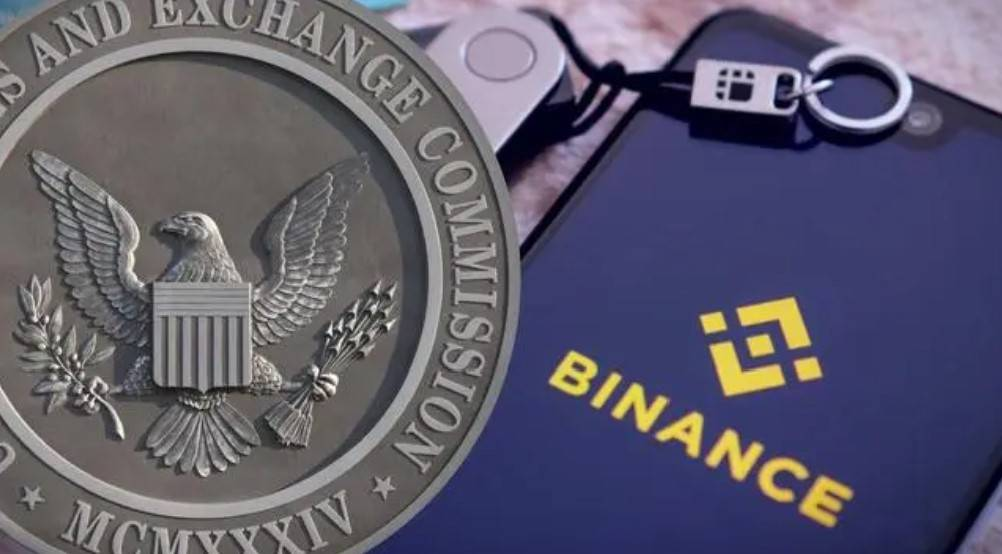Introduction: Zhao Changpeng (CZ), the founder of Binance, was arrested and sentenced for failing to comply with anti-money laundering regulations and other legal requirements, which has attracted widespread attention in the global cryptocurrency market. This article will provide a detailed account of the incident and its far-reaching impact.
I. The Incident
1. Investigation and Prosecution
2018: The U.S. Department of Justice (DOJ) initiated an investigation into Binance, suspecting non-compliance with U.S. anti-money laundering (AML) regulations and sanctions laws.
From 2020: The DOJ conducted a deeper investigation into Zhao Changpeng and his operation of Binance, requesting relevant records of anti-money laundering checks and Zhao Changpeng's personal communication records.
March 2021: The U.S. Commodity Futures Trading Commission (CFTC) launched an investigation into Binance, suspecting it allowed U.S. customers to engage in cryptocurrency derivatives trading.
March 2023: The CFTC formally filed a lawsuit against Binance and its founder Zhao Changpeng (CZ), accusing them of violating the Commodity Exchange Act and other regulations.
June 2023: The U.S. Securities and Exchange Commission (SEC) filed a civil lawsuit in the District Court for the District of Columbia, charging Binance and Zhao Changpeng with 13 counts of illegal operation of trading platforms, unregistered exchanges, and securities issuance.
November 2023: Zhao Changpeng pleaded guilty in the U.S. Federal Court in Seattle, admitting to violating the U.S. Bank Secrecy Act and reaching a plea agreement.
2. Legal Charges
CFTC and DOJ accused Binance of being unregistered as a futures commission merchant (FCM), violating the Commodity Exchange Act.
Most of Binance's revenue comes from U.S. customers, but it failed to comply with U.S. Know Your Customer (KYC) and AML regulations.
Binance was accused of helping U.S. customers bypass access restrictions and allowing them to engage in leveraged trading, among other things.
3. Judgment
April 30, 2024: The U.S. Federal Court in Seattle sentenced Zhao Changpeng to 4 months in prison and fined him $50 million.
Binance agreed to pay a $4.3 billion fine and accept supervision by a government-appointed supervisor for its operations.
II. Evasion and Cooperation
1. Evasion of Regulation
Zhao Changpeng attempted to evade regulation by establishing offices in multiple countries such as Japan, the UK, the U.S., and Singapore.
Binance Holdings Limited was registered in the Cayman Islands and implemented distributed offices with employees in over 60 countries and regions worldwide.
2. Cooperation with Investigation
In November 2023, Zhao Changpeng voluntarily went to the U.S. court to plead guilty in hopes of reducing future regulatory pressure.
III. Legal and Regulatory Background
1. U.S. Cross-Border Jurisdiction
Regulation of virtual assets in the U.S. is mainly the responsibility of departments such as the SEC, CFTC, FinCEN, and OFAC.
Extraterritorial jurisdiction: U.S. law allows for jurisdiction over actions occurring abroad but affecting the U.S.
2. Binance's Violations
Failure to effectively implement anti-money laundering measures and customer identity verification (KYC).
Providing trading services to countries under U.S. sanctions (e.g., Iran).
Failure to obtain a Money Services Business (MSB) license from the U.S. Department of the Treasury's Financial Crimes Enforcement Network (FinCEN).
IV. Impact Analysis
1. Impact on Binance
The substantial fines and regulatory pressure may lead to global business adjustments for Binance. Despite paying a $4.3 billion fine, Binance still has a strong asset base, holding approximately $6.9 billion in cryptocurrency assets.
Capital outflow: According to Nansen data, since the news broke, $1 billion has flowed out of the Binance platform.
2. Market Reaction
After Zhao Changpeng's guilty plea, the market experienced some fluctuations, with the price of Bitcoin briefly dropping below $60,000 but subsequently recovering.
Binance users withdrew approximately $1.25 billion within 24 hours, but the outflow subsequently returned to normal levels.
3. Industry Impact
This marks the gradual end of the era of unregulated growth and lack of supervision in the cryptocurrency industry. The Zhao Changpeng incident may lead other cryptocurrency exchanges to strengthen internal compliance measures to avoid similar issues.
It increases the requirement for Web3 projects to operate in compliance, prompting more projects to proactively embrace regulation.
4. Regulatory Environment
This incident indicates the tough stance of U.S. regulatory agencies on the cryptocurrency market, and future trading platforms may face stricter regulatory scrutiny and compliance requirements.
The SEC and CFTC may continue to investigate other cryptocurrency platforms.
V. Conclusion
The arrest of Zhao Changpeng reflects the complex regulatory environment and legal risks facing the cryptocurrency market. Although Binance temporarily resolved the crisis by paying substantial fines and adjusting its management, future compliance and regulatory challenges remain severe. This incident not only affects Binance but also serves as a warning to the entire cryptocurrency industry, emphasizing the need for platforms to focus more on compliance and risk management. For Web3 entrepreneurs, comprehensive understanding and compliance with the legal and regulatory requirements of the countries where they serve users are essential to achieve the long-term development of the industry.

Image source: Internet
免责声明:本文章仅代表作者个人观点,不代表本平台的立场和观点。本文章仅供信息分享,不构成对任何人的任何投资建议。用户与作者之间的任何争议,与本平台无关。如网页中刊载的文章或图片涉及侵权,请提供相关的权利证明和身份证明发送邮件到support@aicoin.com,本平台相关工作人员将会进行核查。




